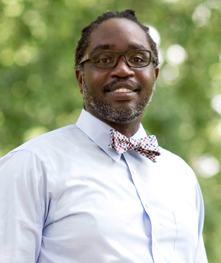 Sean Joe, the Benjamin Youngdahl Professor of Social Development at the Brown School
Sean Joe, the Benjamin Youngdahl Professor of Social Development at the Brown School
The global pandemic caused by COVID-19 has left millions struggling with grief in a new way. Specifically, the novel severe acute respiratory syndrome coronavirus 2 (SARS-CoV-2) pandemic has left many in America and across the globe without the opportunity to be present during the illness process, dying process, or the burial process of those dear to them. Families are experiencing shockingly abrupt realizations that this pandemic is challenging their cultural practices and coping responses to illness and death. Many are left confronting intensely troubling, very deep, and endless amounts of challenging grief. This is what Kenneth J. Doka, PhD, author of Grief Is a Journey, refers to as “disenfranchised grief”—so much loss, not culturally or publicly sanctioned or mourned (Doka, 2016).
Many Americans are also experiencing vast amounts of loss and stress, not only to death but also the loss of jobs and wages, intense physical insolation, and the inability to celebrate momentous occasions, such as graduations, holidays, anniversaries, and weddings. All while increasing news reports share stories of emergency medical service workers as well as emergency department nurses and doctors, all experiencing numerous patient deaths, unprocessed grief, insomnia, and severe frustration associated with being unable to attend to volumes of unmet need (Brooks et al., 2020). The impact is traumatic and some feel inconsolable.
Read the full piece in Social Work Today.